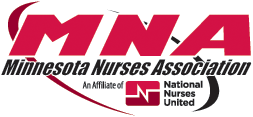NOTES ON NURSING
HHS Secretary Sebelius Hails Nurses National Nurses Week gives us a chance to recognize the contribution of the health care providers at the heart of our health care system. Every day, nurses provide leadership, innovation and advocacy to meet the health care needs of Americans.
Advanced Nurses Lower Costs, Improve Care Studies find that Advanced Practice Registered Nurses who provide preventive care are as effective as primary-care physicians in accuracy of diagnosis and prescription.
LABOR UPDATES
The Labor Market Won’t Be Healthy Until People Feel Like they Can Quit Their Jobs The unemployment rate may be falling and the number of jobs rising. But there isn’t enough “churn” going on, a hallmark of a healthy job market, in which people freely move between positions.
Daily Job Death Toll: 150 Workers The report finds that along with the 4,693 workers killed on the job in 2011 (about 13 a day)—the last figures available from the U.S. Bureau of Labor Statistics (BLS)—an estimated 50,000 workers a year (about 137 a day) die from occupational diseases. In addition, some 3.8 workers are reported to suffer job-related injuries or illnesses each year.
Battle at Kaiser Permanente is Sign of Vibrant Health Care Unions “The old image is of a union worker being a steel worker or an auto worker but the typical person today is a teacher, nurse, firefighter or airline pilot. Nurses are one of the most unionized groups in society,” said Alex Colvin, who chairs the labor relations department at Cornell University. “This isn’t an area where unions are dying.”
HEALTH CARE
Slowdown in Rise of Health Care Costs May Persist David M. Cutler estimates that, given the dynamics of the slowdown, economists might be overestimating public health spending over the next decade by as much as $770 billion. Related: Structural Changes May Be Foundation for Containment
Same Procedure, $30K Difference in Hospital Billing For the first time, the federal government has released the prices that hospitals charge for the 100 most common inpatient procedures. Until now, these charges have been closely held by facilities that see a competitive advantage in shielding their fees from competitors. What the numbers reveal is a health-care system with tremendous, seemingly random variation in the costs of services.



